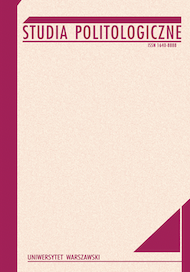Правопреемство в международном праве
после распада СССР
Succession in International Law after the Collapse of the USSR
Author(s): Vitalij Viktorovič Gončarov, Anna Romanovna PopovaSubject(s): Law, Constitution, Jurisprudence, International Law
Published by: Wydział Nauk Politycznych i Studiów Międzynarodowych UW
Keywords: collapse of the USSR; external debt; property of the USSR; member states; agreement; legal acceptance
Summary/Abstract: After the collapse of the USSR, a huge superpower that occupied one sixth of the land, the question of succession arose before the states that were part of it. The USSR occupied a vast territory, participated in international obligations, had debts, was a member of international organizations. It was obvious that the relationship between the newly formed states depended on how it was possible to divide the “legacy” of the USSR. The USSR took an active position at the international level, was engaged in the development of weapons. The issue of dividing all assets and liabilities worried the entire international community. His decision was difficult, and the legal basis for making decisions on succession did not seem to everyone to be indisputable. At present, it is obvious to everyone that the Russian Federation became the main heir of the USSR, it was the Russian Federation that continued the policy of the USSR, continued to participate in international relations and in the fulfillment of obligations, despite the equality of all states that were part of the USSR. The issues of the succession of the USSR and Russia are the subject of study of modern international law. Within the framework of this article, some aspects of the indicated topic will be highlighted.
Journal: Studia Politologiczne
- Issue Year: 62/2021
- Issue No: 62
- Page Range: 134-142
- Page Count: 9
- Language: Russian

